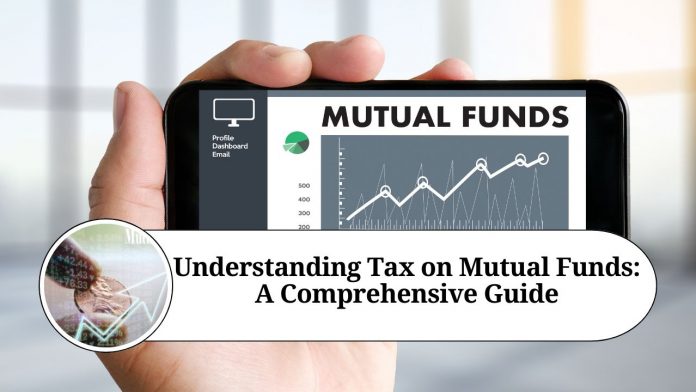Mutual funds are a popular investment option for many individuals seeking to grow their wealth. However, it’s important to be aware of the tax implications that come with investing in mutual funds. In this blog post, we’ll provide a comprehensive guide on understanding tax on mutual funds.
What are Mutual Funds?
Before we dive into the tax implications of mutual funds, let’s first understand what they are. Mutual funds are a type of investment vehicle that pools money from multiple investors to invest in a diversified portfolio of stocks, bonds, and other securities. This allows individuals to access a diverse range of investments without having to research and manage each individual investment themselves.
Tax Implications of Mutual Funds
There are three main types of taxes that investors need to be aware of when investing in mutual funds: capital gains tax, dividend tax, and the expense ratio tax.
- Capital Gains Tax
Capital gains tax is the tax paid on the profit made from selling an investment. When a mutual fund sells a security that has increased in value, the fund realizes a capital gain. These capital gains are passed on to the individual investors in the form of capital gains distributions.
There are two types of capital gains: short-term and long-term. Short-term capital gains are gains realized on securities held for less than one year, while long-term capital gains are gains realized on securities held for more than one year.
Short-term capital gains are taxed at the investor’s ordinary income tax rate, while long-term capital gains are taxed at a lower rate. For individuals in the highest tax bracket, the long-term capital gains tax rate is currently 20%.
- Dividend Tax
Dividends are payments made by a company to its shareholders out of its profits. When a mutual fund earns dividend income from its portfolio of investments, it distributes those dividends to its investors.
Dividend income is taxed at the investor’s ordinary income tax rate. However, qualified dividends may be taxed at a lower rate. To qualify for the lower tax rate, the dividend must be paid by a U.S. corporation or a qualified foreign corporation, and the investor must have held the stock for a certain period of time.
- Expense Ratio Tax
Expense ratio is the fee charged by the mutual fund company to cover the cost of managing the fund. This fee is deducted from the fund’s assets, which can reduce the overall return for investors.
While expense ratio is not a direct tax, it can have a similar impact on an investor’s return as a tax. To minimize the impact of expense ratio on your investment returns, it’s important to choose a mutual fund with a low expense ratio.
Tax-Efficient Mutual Fund Strategies
There are several tax-efficient mutual fund strategies that investors can use to minimize the impact of taxes on their investment returns. Here are a few strategies to consider:
- Tax-Advantaged Accounts
Investing in mutual funds through tax-advantaged accounts, such as a 401(k) or IRA, can help minimize the impact of taxes on your investment returns. These accounts allow your investments to grow tax-free or tax-deferred until you withdraw the funds in retirement.
- Index Funds
Index funds are passively managed mutual funds that track a specific market index, such as the S&P 500. Since index funds trade less frequently than actively managed funds, they tend to generate fewer capital gains distributions, which can minimize the impact of capital gains tax.
- Tax-Loss Harvesting
Tax-loss harvesting is a strategy where you sell losing investments to offset gains in other investments. This can help minimize your overall capital gains tax liability.
Read more useful content:
- How to invest in mutual funds
- Best Technology Mutual Funds
- All about mutual funds-types & importance
- The Power of SIP Investment in Mutual Funds
Frequently Asked Questions (FAQs)
Q: What is the tax on mutual funds?
A: Mutual funds are subject to capital gains tax, dividend tax, and the expense ratio tax.
Q: How is capital gains tax calculated on mutual funds?
A: Capital gains tax is calculated based on the profit made from selling an investment. Short-term capital gains are taxed at the investor’s ordinary income tax rate, while long-term capital gains are taxed at a lower rate, depending on the investor’s tax bracket.
Q: How is dividend tax calculated on mutual funds?
A: Dividend income is taxed at the investor’s ordinary income tax rate. However, qualified dividends may be taxed at a lower rate, depending on the investor’s holding period and the nature of the dividend.
Q: What is the expense ratio tax on mutual funds?
A: The expense ratio is the fee charged by the mutual fund company to cover the cost of managing the fund. This fee is deducted from the fund’s assets, which can reduce the overall return for investors.
Q: How can investors minimize the impact of taxes on mutual funds?
A: Investors can use tax-efficient mutual fund strategies, such as investing in tax-advantaged accounts, index funds, and tax-loss harvesting.
Q: What are tax-advantaged accounts for mutual funds?
A: Tax-advantaged accounts, such as 401(k) or IRA, allow investments to grow tax-free or tax-deferred until you withdraw the funds in retirement.
Q: What are index funds?
A: Index funds are passively managed mutual funds that track a specific market index, such as the S&P 500.
Q: What is tax-loss harvesting for mutual funds?
A: Tax-loss harvesting is a strategy where you sell losing investments to offset gains in other investments. This can help minimize your overall capital gains tax liability.




















